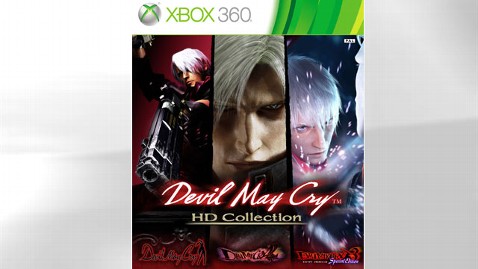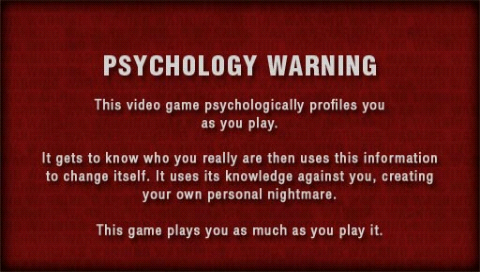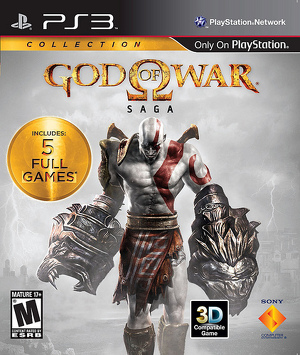The recent
slew of HD re-releases has got me a little upset. Before I get started though, let me say
this. No, I don't have a problem with
ports or re-releases. I'm not a purist
who thinks that games were best on the consoles they were released on. Re-releases serve a valid purpose in exposing
a new audience to old properties and in gathering together games spanning many
different consoles and putting them in one easy to use package. However, what I hate is the blatant cash
grabbing, the lack of care brought to bear in the games being re-released, and above
all else, laziness.
 |
| If a game series can be re-released, companies will re-release it. |
Let me try
to explain. I was a big fan of the Final
Fantasy compilations on the Playstation.
Each one either improved the graphics of it's previous incarnation or
included a game that had never been released outside of Japan. Even Final Fantasy Chronicles, which was
almost a straight port
of Final Fantasy 4 and
Chrono Trigger, returned Final Fantasy 4 to its original difficulty and gave
Chrono Trigger a boatload of extras for players to unlock, including new cut
scenes, musical tracks, and a way of keeping score of how many endings had been
unlocked. With each of these
re-releases, there was effort put into the package, as new content or whole new
games were released. What made the
originals unique was preserved and at times improved. Now, compare that to recent fare.
 |
| A Final Fantasy re-release before Square started handing those out like tissue paper. It actually offered a more difficult experience and a number of extras for both games. |
The Silent
Hill HD collection gathered only two games together. Two games from the same console
generation. Two games which were
originally already backwards compatible with the Playstation 3 before that was removed
due to corporate greed. But, how were
the remakes? Atrocious. The games worked fine in their original
states, but the "HD improvements" introduced a ton of graphical and
audio glitches, removed some of the atmosphere that the originals had created,
and required patches from day one for decade old games. My simple question has to be, if I could
still find Silent Hill 2-4 in stores as of 2012, why did this even need to
exist? It was far poorer quality and did
not gather any of the more wayward games, like Silent Hill: Origins from the PSP or the
original Silent Hill from the Playstation.
 |
| An HDcollection released in 2012 botched so badly that it looks laughable compared to the original release over a decade earlier. |
Once again,
compare that to a good collection. The
Mega Man Anniversary Ccollection on the Playstation 2 gathered over eight Mega Man games
together, spanning three console generations, with some that were never
released outside of Japan. The games had no errors, played just as
faithfully as they did on their home consoles, and were preserved graphically. This kind of collection is what I love. Something like the Devil May Cry Collection
which only gathers three games from the same console generation...yeah, I can
let that slide since it was an entire series at the time, but my question still
remains. If you won't add anything
extra, won't gather together games from far apart, and can, in fact, make the
properties poorer for it, why are you even re-releasing these games? The simple answer is money. Companies bank on nostalgia and word of mouth
from older games to sell these re-releases which are relatively inexpensive to
make compared to creating a whole new AAA game, and continually churn them
out. Look, I get it. Companies need money to survive and I've
already said before, use it or lose it when it comes to IP. I'm still waiting for a Breath of Fire or
Suikoden Collection. But honestly, I
think that we give collections a bit too much of a free pass. Especially compared to remakes or
reimaginings.
 |
| This is how a collection or re-release should be. Check the box art. 10 games on 1 disc. |
That brings me to my second
point in this discussion. Remakes and
reimaginings. Often, they requires a
thousand times the work of re-releasing a compilation set, but because they
deviate from the previous game, they get a lot of flak. Examples of this are the Wild Arms remake,
Wild Arms: Alter Code F, the Lufia 2 remake, Lufia: Curse of the Sinistrals,
and Silent Hill: Shattered Memories, the remake of the original Silent
Hill. Now, the big difference between a
remake or a reimagining and an HD re-release is this. A re-release may touch up the graphics or add
extras and Easter eggs , but it doesn't change the game. Sometimes, this can be for the best, as some
games are classic. However, too often, I
think that gamers don't appreciate the sheer audacity and courage it takes to make
changes to these properties, which are considered almost sacred by their fans.
 |
| Wild Arms, the original |
 |
| Wild Arms remake. Can you see the effort? |
The three
games I just mentioned drastically altered how their respective games were
played while still keeping true to the spirit of the original.
And this, I think, is the whole point.
Trying something new with a property while
being faithful to fans in their own way or fixing what was broken with the
property to begin with.
Ben "Yahtzee"Croshaw, from Zero Punctuation on the Escapist, put it best when he described
Silent Hill: Shattered Memories as, "This is everything a reboot should
be.
Something not afraid to fix shit
that didn't work."
Going in a different direction
from the original with a remake is not necessarily a bad thing.
New story bits, a fresh take on game design,
or just fixing problems that were in the original allows gamers to experience something
more polished as well while giving the game a new coat of paint.
These design choices take effort and courage,
as even slight deviations can be seen as betrayals.
One major point of contention in Silent Hill:
Shattered Memories was the lack of ability to defend oneself or the fact that
enemies only appeared in certain sections of the game.
True, this may have deviated from the
atmosphere of dread and constant danger that the original espoused, but it also
allowed for a tighter, more focused psychological narrative.
 |
| Say what you want about the game changes to Silent Hill Shattered Memories, at least it made the effort to try something new. |
Of course,
one doesn't have to rock the boat all that much to make a remake work. The Dragon Quest games on the Nintendo DS are
ports of their NES and SNES counterparts, only with better graphics. However, a number of nagging issues have been
addressed. There is no longer a need to
shut down the system while saving, there was additional content added to the games
to help iron out story bits, and there is a better translation of the dialogue. This is how a faithful remake can be done
safely. Keeping what fans know, I.E. the
characters, story, and game design, while ironing out problems in the
originals.
 |
| Dragon Quest 5 before remake |
 |
| Dragon Quest 5 after remake. It's the same game, just prettier and more polished. As it should be. |
Lufia:
Curse of the Sinistrels does the exact opposite. It greatly alters the aesthetic, gameplay,
puzzles, and changes the story somewhat, but manages to keep the characters,
the villains and the overall feel of the game consistent with the
original. This allows gamers who have
played the original to enjoy something new and fresh, while allowing easier
access to the world of Lufia for fans who didn't get a chance to play the
original. It would have been simplicity
to keep the same translation, same game design, and even the basic look of the
game, making it just a straight port, but Neverland, the developers, decided to take a risk and
offer the same familiar characters gamers loved in a fresh new adventure. That took courage for the decision and a ton
of effort, as the entire game was redesigned from scratch.
 |
| Lufia 2 in its original form |
 |
| Lufia 2 remake. It's like night and day. A straight up RPG vs an action RPG. Imagine the risk Neverland took in remaking this game. That took courage. |
The point I
am trying to make here is the difference between the worthwhile and the
mundane. I want gamers to understand the
difference between earnest effort and a cheap cash in. I give plenty of praise to remakes, but
honestly, I love collections. The Sega
Genesis Collections on the PS2, PS3, and Xbox 360 have some of my favorite
games of all times on them. I got to
play Megaman 5 and 6 for the first time with the Mega Man Anniversary Collection. And the Capcom Classic Collections included some
amazing old gems I'd never get a chance to play anywhere else. But here's the thing. Those collections had a large number of full
games together at once, with additional functionality, Easter eggs, and secrets
to unlock. The Mega Man collection had
about 10 games, some of which were unlockable.
The Capcom Classics Collections had over thirty games a piece, with trivia for each. Even the Devil May Cry Collection gathered at
least all three games in the series up to that point with the added content of
Devil May Cry 3's Special Edition. But
look at recent releases. Zone of the
Enders, while great, has only two games on it and a demo of the new Metal Gear
Solid. Ico Collection, two games. Silent Hill Collection, two games. There were two God of War Collections, each with only two games. Infamous collection, two games and a DLC
code. This is lazy. The Infamous collection in particular offends
me since there is no point to it. Both
games are still easy to find in stores and both can be bought online on the
PSN. It's a cash grab and a thinly
veiled one at that. If you're going to
re-release, make it worth the player's wild.
The most recent God of War Collection, God of War Saga, includes all five games in the series,
remastered. That's five games from three
different consoles. Game companies KNOW
how to re-release games. They are merely
seeing how cheap they can go and still make money.
 |
| Did we really need this remake? The extra episode was released as DLC and doesn't even come on the disc. |
Now, look
at the reimaginings or remakes released in recent years. The most recent as of this date is DMC, which
tries to reboot Devil May Cry. While I
don't much care for the tone, the combat is smooth and polished, the controls
are acrobatic and make the player feel powerful, and it has multiple options
for play. Yet many fans still cry foul
over it, to the point where they petitioned the government to have it
banned. I can understand being offended
if a remake betrays the conventions of the original and I'm kind of in the camp that DMC's story
does, but...it's a game. It's meant to
be fun. If the effort was put in to make
it enjoyable, then don't just shove it aside for a crappy re-release just because you disagree with minor bits.
 |
| Look, I hate the new Dante too, but c'mon...give the game credit. This looks bad ass. |
Another one
is the Final Fantasy 4 collection on the PSP.
This graphically enhances Final Fantasy 4, the somewhat panned Final
Fantasy 4: After Years, and adds in a new scenario to bridge the games. Whatever your opinion is on the near constant
re-releasing and porting of Final Fantasy 4, give credit where credit is due. The game's graphics are painstakingly
gorgeous, with better sound, additional scenarios, and all the gameplay features
of the original.
Can you see
what I am saying? The game industry
banks on nostalgia to make money. They
know it will. However, if you KNOW
something is going to sell, why bother to improve it? That is the logic I see them working by,
especially with re-releases like the Silent Hill collection. My plea to gamers and the industry is
this. Recognize laziness or ineptitude
and refrain from supporting it. Either
the industry will step up its game with these re-releases or they will stop
abusing their properties and provide better experiences with their new
games. The truth is, players have the
game industry by the short hairs. If they
refuse to buy a game, then they dictate with their money that ineptitude,
laziness, and cash grabs will not fly and the industry will have to improve or
it will crash again.
 |
| Can we not encourage the haphazard re-releasing? These games weren't even half a decade old when this came out. |
 |
| And a few years later we get ANOTHER re-release, with all the games on it. This is what a God of War Collection SHOULD have been to begin with. |
Also,
recognize effort. Gamers, put aside your
pride over a series you love and learn to love a remake for what it is. It's a game and it's meant to have fun. If it's poorly designed, then don't buy it,
don't support it, but if it is good, just different from what you've expected,
then don't try to destroy it out of some puritanical loyalty to the
original. The original was already
made. Give credit where credit is due to the new property.
There is nothing wrong
with nostalgia in gaming. Often, the
past is both enjoyable and can educate.
Collections, remakes, and reimaginings are our doorway to the past. But take off your rose tinted glasses and recognize that sometimes you should demand better. Just because something claims to be a re-release or an improvement does not automatically make it better. Be informed and if the product is shoddy, don't support it. So long as we remember the games we love, companies will continue to try and make money off them. There will always be another re-release.















No comments:
Post a Comment